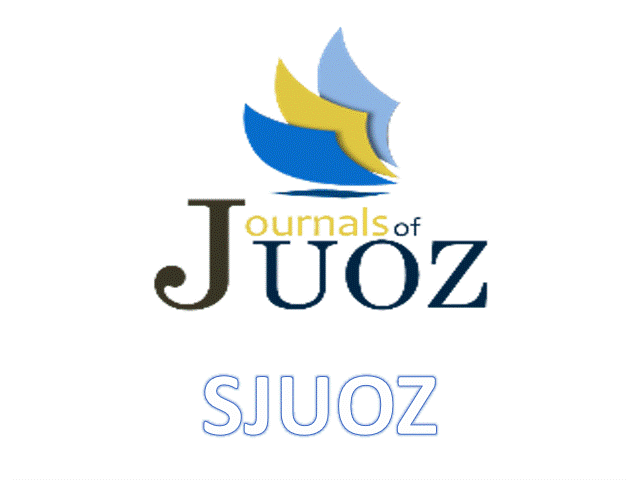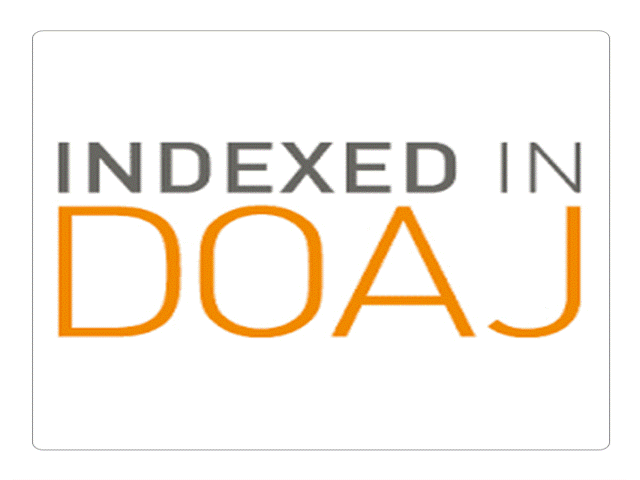UTILIZING MULTINOMIAL LOGISTIC REGRESSION FOR DETERMINING THE FACTORS INFLUENCING BLOOD PRESSURE
DOI:
https://doi.org/10.25271/sjuoz.2024.12.3.1322Keywords:
logistic regression, Binary variable Odds ratio, maximum likelihood method, categorical data analysisAbstract
The aim of this study is to investigate the practical application of the Multinomial (many explanatory variables and many categories) Logistic Regression (MLR) model, which is a fundamental tool for analyzing not only for scale data but also for categorical data with many explanatory variables. This method is primarily used when there is a single nominal or ordinal response variable with multiple categories or levels. MLR analysis has various applications across disciplines such as education, social sciences, healthcare, behavioural research, and some other fields.
We utilized real data from the Azadi Heart Center at the Duhok Hospital in the Duhok Governorate to assess the practical applicability of the model. The main multinomial logistic regression model was used with five explanatory variables. Extensive statistical tests were performed to confirm the suitability of this model for the dataset. Furthermore, the model underwent a validation process wherein two observations were randomly selected from the dataset, and their categorization was predicted based on the values of the explanatory variables utilized.
Our results suggest that the multinomial logistic regression model provides a useful method for distinguishing between the response variable and the set of explanatory factors that makes it easier to determine the exact influence of each variable and enables predictions about how a particular instance will be classified.
Downloads
References
Y. R. Gel, V. Lyubchic, & L.L. Ramirez, Fast Patchwork Bootstrap for Quantifying Estimation Uncertainties in Sparse Random Networks, USA, ( 2016).
S. M. Ajeel, H. Hashem, Comparison Some Robust Regularization Methods in Linear Regression via Simulation Study, Academic Journal of Nawroz University (AJNU), Vol.9, No.2, Jan, (2020).
C.R. Bilder, T.M. Loughin, Analysis of Categorical Data with R. Boca Raton, FL: Chapman & Hall/CRC, (2015).
M. H. Joseph, Practical Guide to Logistic Regression, Taylor & Francis Group, LLC, (2015).
Y. Liu, On Goodness of Fit of Logistic Regression Model, PhD. Thesis, Kansas State University, Manhattan, Kansas. (2007).
A. Abbasi, J. Altmann, L. Hossain, Identifying The Effects of Co-Authorship Networks on The Performance of Scholars: A Correlation and Regression Analysis of Performance Measures and Social Network Analysis Measures, Volume 5, Issue 4, Pages 594-607, ( 2011).
I. Fathy, Use of information criteria and detection model methods to select the best linear regression model with application on thalassemia children in Mosul, journal of education and science 25(2):189–200, June (2012).
Y. Gel, V. Lyubchich, L. Ramirez, Sparse Random Networks, Scientific Reports journal, (2016).
S. M. Ajeel, J. A. Haji, B. H. Jahwar. Using Multinomial Logistic Regression to Identify Factors Affecting Platelet, Journal of University of Duhok., Vol. 62, No.2, (2023).
C.J. Peng, K.L. Lee & G.M. Ingersoll, An Introduction to Logistic Regression Analysis and Reporting, The Journal of Educational Research, 96(1), 3-14, (2002).
S. Aggarwal, S. Gollapudi, S. Gupta, Increased TNF-Alpha-Induced Apoptosis in Lymphocytes from Aged Humans: Changes in TNF-Alpha Receptor Expression and Activation of caspases. J Immunol, 162, 2154-2161, (1999).
D.Kleinbaum, M. Klein, Logistic Regression(Statistics for Biology and Health) (3rd ed.), New York, NY: Springer-Verlag New York Inc, (2010).
A. Assinger, Platelets and Infection - An Emerging Role of Platelets in Viral Infection, Front Immunol, 5: 649, (2014).
A. Agresti. An Introduction to Categorical Data Analysis, New York, NY: Wiley & Sons, (1996).
Johansson, J.K., Niiranen, T.J., Puukka, P.J. and Jula, A.M., 2010. Factors affecting the variability of home-measured blood pressure and heart rate: the Finn-home study. Journal of hypertension, 28(9), pp.1836-1845.
Kuwabara, M. and Hisatome, I., 2019. The relationship between fasting blood glucose and hypertension. American Journal of Hypertension, 32(12), pp.1143-1145.
Lv, Y., Yao, Y., Ye, J., Guo, X., Dou, J., Shen, L., Zhang, A., Xue, Z., Yu, Y. and Jin, L., 2018. Association of blood pressure with fasting blood glucose levels in Northeast China: a cross-sectional study. Scientific reports, 8(1), p.7917.
Leung, H., Wang, J.J., Rochtchina, E., Tan, A.G., Wong, T.Y., Klein, R., Hubbard, L.D. and Mitchell, P., 2003. Relationships between age, blood pressure, and retinal vessel diameters in an older population. Investigative ophthalmology & visual science, 44(7), pp.2900-2904.
Murphy SP, Johnson RK. The scientific basis of recent US guidance on sugars intake. Am J Clin Nutr. 2003;78:827S–833S.
Primatesta, P., Falaschetti, E., Gupta, S., Marmot, M.G. and Poulter, N.R., 2001. Association between smoking and blood pressure: evidence from the health survey for England. Hypertension, 37(2), pp.187-193.
Mann, S.J., James, G.D., Wang, R.S. and Pickering, T.G., 1991. Elevation of ambulatory systolic blood pressure in hypertensive smokers: a case-control study. Jama, 265(17), pp.2226-2228.
Zhou, B., Carrillo-Larco, R.M., Danaei, G., Riley, L.M., Paciorek, C.J., Stevens, G.A., Gregg, E.W., Bennett, J.E., Solomon, B., Singleton, R.K. and Sophiea, M.K., 2021. Worldwide trends in hypertension prevalence and progress in treatment and control from 1990 to 2019: a pooled analysis of 1201 population-representative studies with 104 million participants. The Lancet, 398(10304), pp.957-980.
Song, J.J., Ma, Z., Wang, J., Chen, L.X. and Zhong, J.C., 2020. Gender differences in hypertension. Journal of cardiovascular translational research, 13, pp.47-54.
A. Agresti, An Introduction to Categorical Data Analysis, 2nd edn , John Wiley & Sons, Inc., Hoboken, New Jersey, (2007).
Published
How to Cite
Issue
Section
License
Copyright (c) 2024 Azad A. Shareef, Sherzad M. Ajeel, Hussein A. Hashem

This work is licensed under a Creative Commons Attribution 4.0 International License.
Authors who publish with this journal agree to the following terms:
- Authors retain copyright and grant the journal right of first publication with the work simultaneously licensed under a Creative Commons Attribution License [CC BY-NC-SA 4.0] that allows others to share the work with an acknowledgment of the work's authorship and initial publication in this journal.
- Authors are able to enter into separate, additional contractual arrangements for the non-exclusive distribution of the journal's published version of the work, with an acknowledgment of its initial publication in this journal.
- Authors are permitted and encouraged to post their work online.








